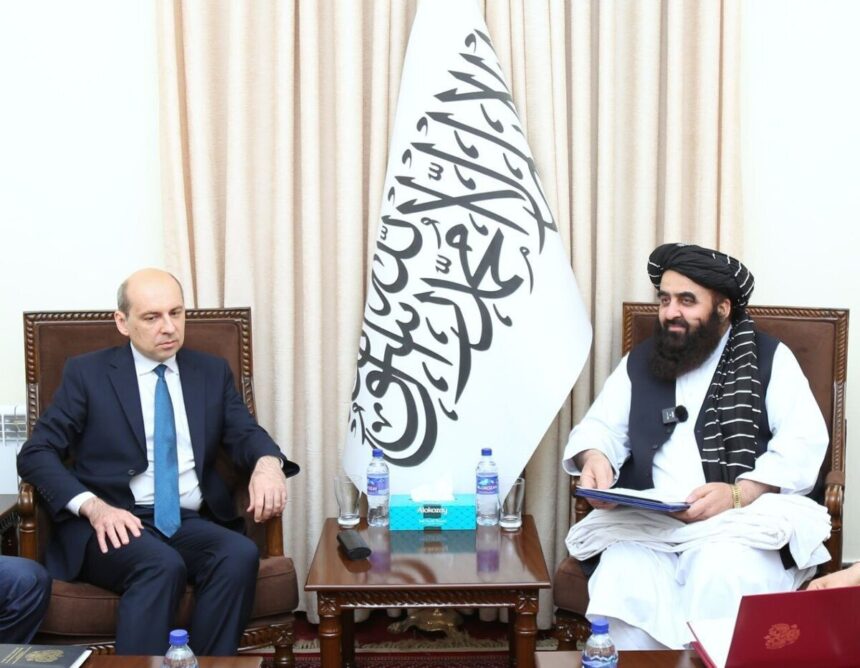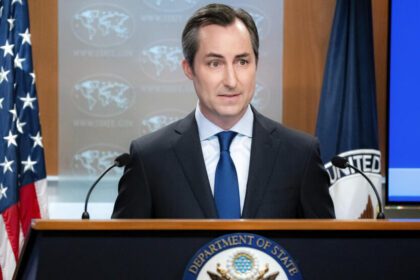RASC News Agency: A wave of outrage and alarm has swept across Afghanistan’s political and media landscape following the Kremlin’s controversial decision to formally recognize the Taliban regime. Women’s rights activists, former military personnel, journalists, and human rights defenders have condemned Moscow’s move as an explicit legitimization of a terrorist organization that has subjected the people of Afghanistan especially its women and minorities to systemic violence, repression, and apartheid. Observers and analysts argue that Russia already regarded as one of the world’s leading violators of human rights has now further disgraced itself by validating a regime that rules without a mandate, constitution, or moral legitimacy. By extending diplomatic recognition to the Taliban, Moscow is not only ignoring their brutal gender policies and ideological tyranny, but also undermining the international consensus that such regimes should never be rewarded.
Zahra (pseudonym), a female journalist based in Kabul, expressed deep anguish at the symbolic and political weight of Russia’s move. “Reading the news of Russia’s recognition felt like reliving the fall of Kabul,” she told RASC. “It sends a devastating message: that the world is prepared to overlook atrocities. But this kind of recognition will only bring shame to Russia, not credibility to the Taliban.” She warned that the implications are grave: “Soon, we may not even have the right to step outside our homes. As women journalists, we already work under threats, fear, and an overwhelming sense of abandonment. Recognizing the Taliban means expanding darkness, not light.” Shahin (pseudonym), a Kabul resident, echoed the sentiment: “Four years have passed, and nothing has improved. If change was coming, it would have come by now. I used to work. Now the Taliban have stripped us of everything. Russia’s decision is an act of cruelty toward Afghanistani women and the entire population. How could they possibly not know what the Taliban have done?”
Zamary (pseudonym), a former Afghanistani soldier, spoke with visible grief: “I served this country in uniform for years. Today I have nothing no job, no bread, no future. And now the international community is shaking hands with those who hunted us. Does our sacrifice mean nothing anymore?” Sepehr Negah, a journalist and political analyst, offered a piercing critique of Moscow’s motives. “Russia, isolated on the global stage and burdened by severe sanctions, is not acting on principle it is engaging in geopolitical theater,” he said. “International legitimacy is not something you gift to regimes that rise through bloodshed and suppression. It must be earned through adherence to human rights, free elections, and inclusive governance standards the Taliban actively reject and violate.”
Negah further emphasized that a regime born of bombings, assassinations, and the destruction of democratic institutions cannot be entrusted with signing international treaties or acting as a legitimate state actor. “This recognition does not confer legitimacy it whitewashes criminality and validates repression.” On Thursday, July 3, Russia became the first nation to formally accept the Taliban’s envoy in Moscow, effectively acknowledging their de facto regime. The Afghanistan’s tricolor was removed from the embassy, replaced with the Taliban’s stark white flag a symbolic erasure of national identity and a direct insult to the legacy of the Afghanistani people.
This act has been perceived by many analysts as a dangerous escalation in the global authoritarian bloc’s attempts to normalize regimes that flout international law and trample civil liberties. Alongside China’s muted endorsement, the move signals an emerging axis of authoritarian legitimization, raising deep concerns about the erosion of global norms. However, experts argue that as long as the United Nations and Western democracies refuse to recognize the Taliban, such endorsements remain largely symbolic and devoid of legal or diplomatic substance. Nonetheless, the psychological and moral consequences for the people of Afghanistan especially its embattled women are profound.
As the Taliban intensify their stranglehold on Afghanistan’s society, the international community now faces a stark moral test: to either confront the normalization of gender apartheid and ideological violence or become complicit through silence and recognition.






